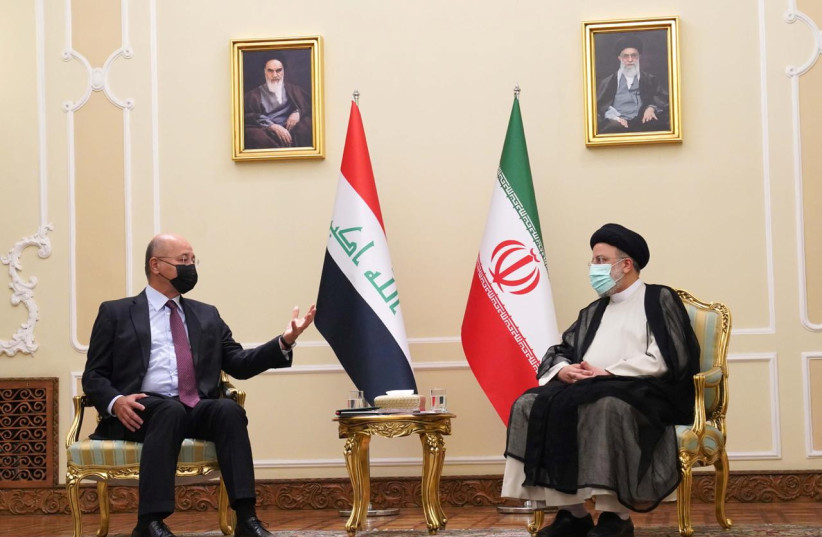Iraq doesn’t plan to normalize ties with Israel in the near future, its Foreign Minister Fuad Hussein told a security conference in Bahrain over the weekend.
“As for the question, is Iraq going to be part of the Abraham Accords soon? – in short, I can say no,” Hussein said in response to queries from participants at the conference IISS Manama Dialogue 2021 on Saturday.
“This is a very difficult issue and has to do with many reasons. Of course, I am not here to explain the reasons, but the answer to this question is no,” Hussein said.
Bahrain’s Foreign Minister Abdullatif bin Rashid Al Zayani, in contrast, spoke in Manama of his country’s support for its ties with Israel and the Abraham Accords, under which those ties were forged in 2020. Other Abraham Accord countries include the United Arab Emirates, Morocco and Sudan.
The Abraham Accords have also been viewed as a regional alliance against Iran. Zayani dismissed that view.

“We are not forming a bloc against any country. The Abraham Accords are a path of peace, not only between the two countries. We hope it’s time that peace will spill over to the whole region. That is the objective,” Zayani said.
There are millions of young people in the Middle East who are deprived of education, health and clean water,” he said. It is important to explore venues to give those millions of people hope, he explained.
The vision of peace, he said, should include all the countries in the Middle East, including Israel and Iran, he said.
“We can live all together in one region. We call this for all, including the Iranians, including the Israelis and all who are in the region,” Zayani said.
For regional peace to occur, however, the Israeli-Palestinian conflict must be resolved, he added.
“To reach that ultimate objective, the bedrock of that process is resolving the Israel-Palestinian issue, based on the two-state solution.
“We say that everywhere, and we advocate it, and we believe in it. We believe that this is the only way to reach a prosperous, safe and secure region,” Zayani said.
